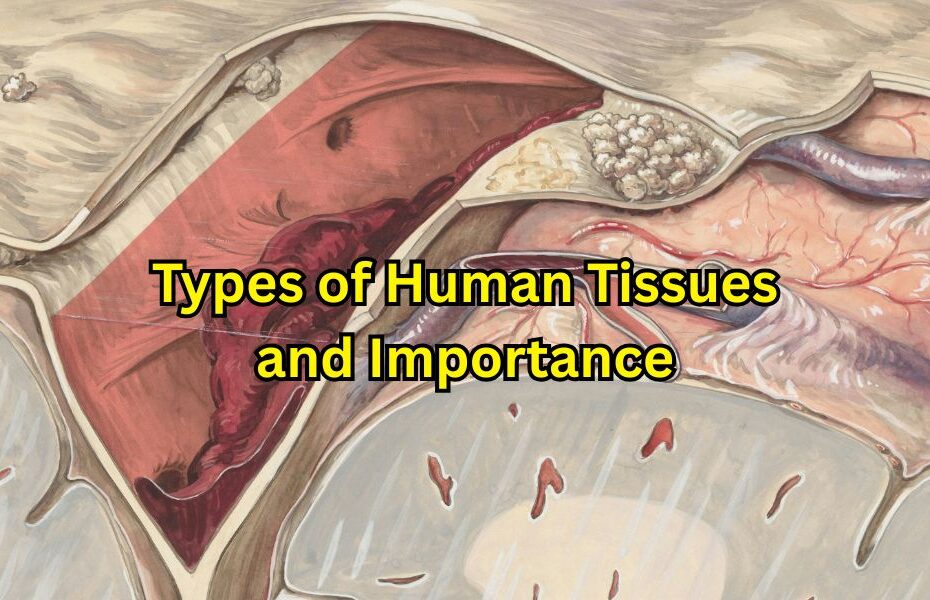Our body is a wonderful machine made of countless tiny units called cells. When a group of similar cells come together to do a specific job, they form a tissue. Just like bricks build a house, tissues build our body. Without tissues, our body would not be able to function properly.
What is a Tissue?
A tissue is a group of cells that work together to perform a particular function. These cells are similar in structure and origin.
Types of Human Tissues
There are four main types of tissues in the human body. Each has a unique role in keeping us alive and healthy.
1. Epithelial Tissue – Body’s Protective Cover
Epithelial tissue covers the outside of the body (like skin) and lines the internal organs (like stomach and lungs).
Epithelial tissue Functions:
- Protects the body from injury and germs
- Helps in absorption (e.g., in intestines)
- Assists in secretion (e.g., glands)
- Supports excretion (e.g., in kidneys)
Examples of Epithelial tissue:
- Skin
- Lining of the mouth
- Walls of blood vessels
2. Connective Tissue – Body’s Support System
As the name suggests, this tissue connects, supports, and binds other tissues.
Types & Functions of Connective Tissue:
- Areolar Tissue: Fills space between organs and helps repair tissues
- Adipose Tissue: Stores fat and keeps us warm
- Cartilage: Provides shape to nose and ears
- Bone: Makes up the skeleton, supports the body
- Blood: Transports nutrients, gases, and waste
- Ligaments: Connect bone to bone
- Tendons: Connect muscle to bone
3. Muscular Tissue – Movers of the Body
Muscular tissue helps in movement by contracting and relaxing.
Types of Muscles:
- Skeletal Muscles: Voluntary muscles attached to bones
- Smooth Muscles: Involuntary muscles in organs like stomach and intestine
- Cardiac Muscles: Found only in the heart, work non-stop
Fun Fact: Cardiac muscles never get tired – they work your entire life!
4. Nervous Tissue – The Body’s Communication System
This tissue is made of special cells called neurons. It helps carry messages between the brain, spinal cord, and body parts.
Nervous Tissue Functions:
- Receives signals (like touch, sound, pain)
- Sends instructions from the brain to muscles and glands
- Helps in reflex actions and memory
Why Are Tissues Important?
Without tissues, our organs wouldn’t be able to function. Each tissue plays a critical role:
- Epithelial protects
- Connective supports
- Muscular moves
- Nervous communicates
Together, they help the body work as one unit – like different departments in a company.
Conclusion
Human tissues are the foundation of our body. Each one is specialized for a task but works in harmony with others. Understanding these tissues not only helps in biology but also helps us appreciate how perfectly our body is designed.
